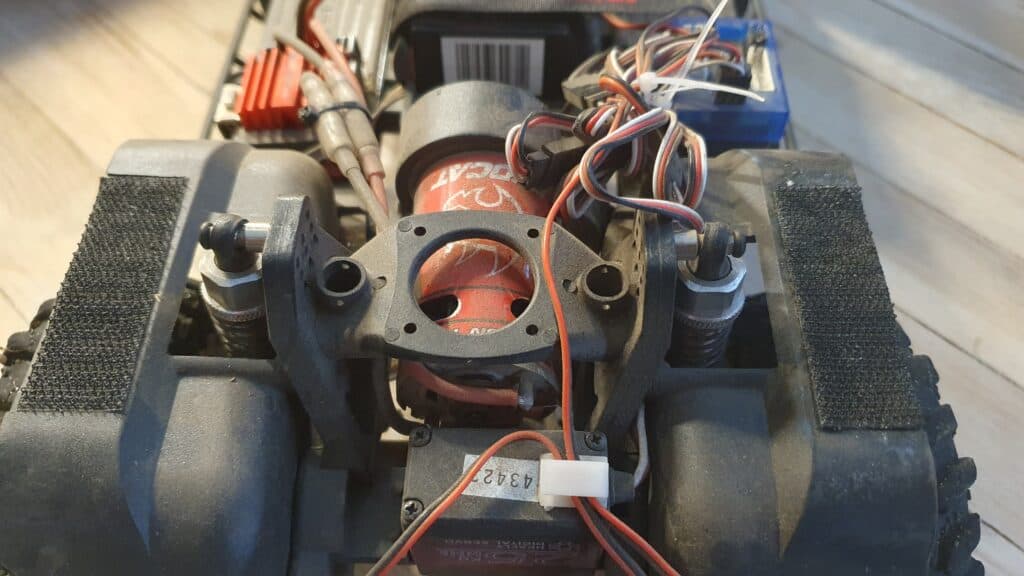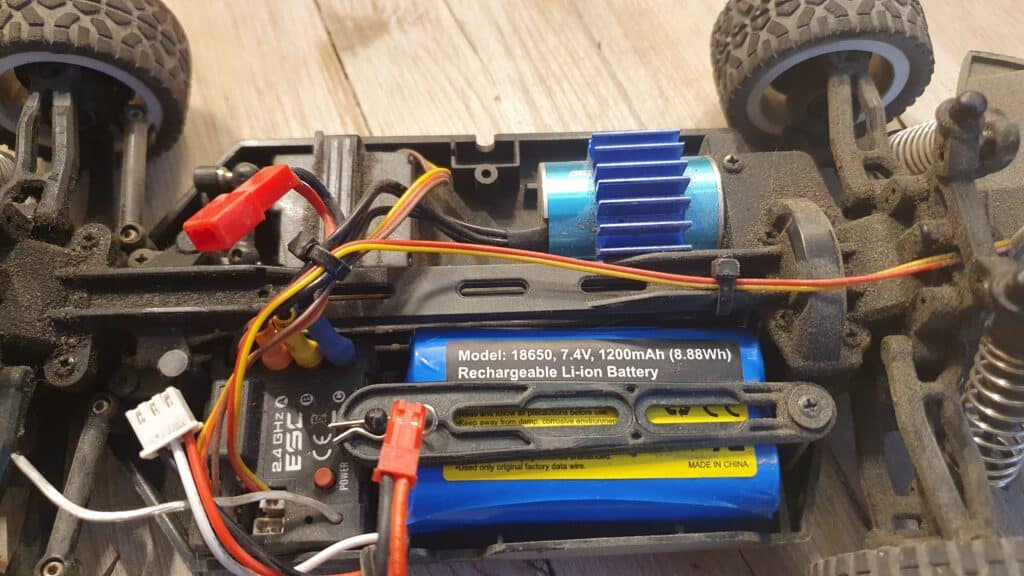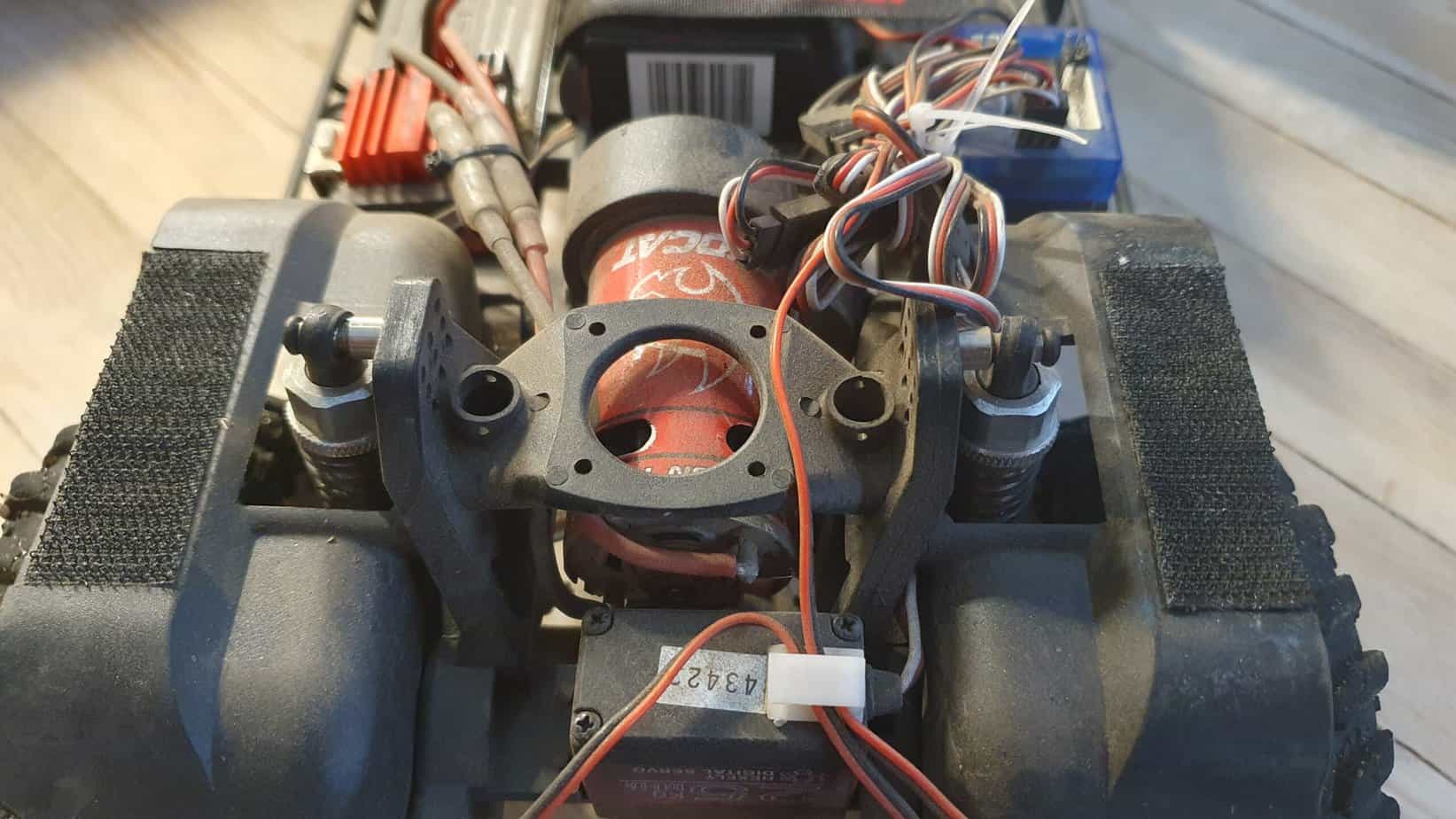If you’re an RC car enthusiast, you’ve probably heard the ongoing debate surrounding brushed vs. brushless motors. It’s a topic that has divided the community for years, leaving many car owners wondering which option is truly better. In this article, we’ll break down the pros and cons of each motor type, giving you the information you need to make an informed decision for your RC car.
Importance of Motors in RC Cars
The motor is the heart and soul of an RC car. It determines the speed, acceleration, torque, and overall performance of the vehicle. Choosing the right motor for your RC car is essential, as it can greatly impact your driving experience. There are two primary types of motors used in RC cars: brushed and brushless motors. Let’s explore each type in detail to understand their functionalities, advantages, and disadvantages.
Brushed Motors
Definition and Functionality of Brushed Motors
Brushed motors have been the traditional choice for RC cars for many years. They feature a simple design consisting of an armature, brushes, and a commutator. The armature, formed by a series of windings, is connected to the power source. As the armature rotates within the magnetic field generated by the brushes and the commutator, it creates the necessary torque to drive the RC car forward.
Advantages of Brushed Motors
One significant advantage of brushed motors is their affordability. They tend to be less expensive than their brushless counterparts, making them an attractive option for beginners or those on a tight budget. Furthermore, brushed motors are known for their simplicity and durability. They can withstand rough terrains and occasional crashes without suffering extensive damage, making them a reliable choice for off-road adventures.
Disadvantages of Brushed Motors
While brushed motors have their merits, they also come with certain limitations. One major drawback is their lower efficiency compared to brushless motors. Brushed motors tend to produce more heat, resulting in a decrease in overall performance. Additionally, brushed motors require frequent maintenance due to the brushes and commutator wearing out over time. Regular cleaning and occasional brush replacement are necessary to keep the motor running smoothly.

Brushless Motors
Definition and Functionality of Brushless Motors
Brushless motors, on the other hand, represent a more advanced and efficient option for RC cars. Unlike brushed motors, they do not rely on physical brushes and a commutator. Instead, brushless motors utilize electronic commutation, where the rotor is magnetically attracted to the stator when electric current flows through its windings. This frictionless design contributes to their improved efficiency and overall performance.
Advantages of Brushless Motors
Brushless motors offer several benefits that make them highly desirable for RC car enthusiasts. Firstly, they are more efficient compared to brushed motors, resulting in faster speeds and longer run times. Additionally, brushless motors generate less heat and have a higher power-to-weight ratio, allowing for superior acceleration and torque. Moreover, their maintenance requirements are minimal, significantly reducing the time and effort spent on upkeep.
Disadvantages of Brushless Motors
However, brushless motors do have a few downsides. The most significant drawback is their higher cost compared to brushed motors. The advanced technology and superior performance come at a price, making brushless motors a more significant investment. Furthermore, brushless motors can be more complex to understand and repair, requiring a certain level of expertise for troubleshooting and maintenance.

Performance Comparison
Now that we have explored the functionalities of brushed and brushless motors, let’s compare their performance across various factors to help you make an informed decision when choosing between the two.
Speed
When it comes to speed, brushless motors have the upper hand. Their electronic commutation system allows for faster rotations, translating into higher speeds on the track. Brushed motors, while still capable of achieving decent speeds, fall short compared to their brushless counterparts.
Efficiency
As mentioned earlier, brushless motors are more efficient than their brushed counterparts. The absence of physical brushes and commutators reduces friction and heat generation, resulting in improved energy efficiency. This efficiency translates to longer run times and increased overall performance.
Maintenance
Brushed motors require more maintenance due to the wear and tear of the brushes and commutator. Regular cleaning and occasional brush replacement are necessary to ensure optimal performance. In contrast, brushless motors have minimal maintenance requirements, making them a hassle-free option for RC car enthusiasts.
Durability
Both brushed and brushless motors are relatively durable, but brushed motors have the upper hand in terms of ruggedness. Their simplicity and robust construction allow them to withstand crashes and rough terrains without sustaining significant damage. Brushless motors, while durable, may require more caution and care to avoid potential damage to their intricate components.
Power Delivery
Power delivery is a crucial aspect when considering an RC car’s motor. Let’s explore how brushed and brushless motors differ in terms of power delivery.
Brushed Motor Power Delivery
Brushed motors deliver power in a less precise manner compared to brushless motors. The physical brushes and commutator create intermittent contact, resulting in a slightly uneven power delivery. This uneven power distribution may affect control and overall performance on the track.
Brushless Motor Power Delivery
Brushless motors provide a more precise and consistent power delivery. The electronic commutation system ensures a smooth and steady flow of power, enabling greater control over the vehicle’s acceleration and speed. This enhanced power delivery contributes to a more refined and enjoyable driving experience.
Acceleration and Torque
Acceleration and torque play a vital role in an RC car’s performance, especially during races and competitions. Let’s compare the acceleration and torque capabilities of brushed and brushless motors.
Brushed Motor Acceleration and Torque
Brushed motors tend to have slower acceleration due to their lower efficiency and frictional components. While they can still provide decent torque, it may not match the torque output of brushless motors. However, slower acceleration can be advantageous in certain off-road scenarios that require precise control and maneuverability.
Brushless Motor Acceleration and Torque
Brushless motors excel in acceleration and torque capabilities. Their efficient design and electronic commutation system allow for rapid acceleration and high torque outputs. This advantage makes brushless motors well-suited for high-speed racing and demanding terrains where power and performance are crucial.
Battery Life
Battery life is a crucial consideration, as it directly impacts the amount of time spent on the track before recharging. Let’s explore how brushed and brushless motors differ in terms of battery life.
Brushed Motor Battery Life
Brushed motors are relatively efficient in terms of battery consumption. Their simplicity and lower power demands allow for extended run times on a single battery charge. With proper maintenance and optimal driving conditions, brushed motors can provide satisfying battery life for extended play sessions.
Brushless Motor Battery Life
Brushless motors, despite their higher power output, can still offer respectable battery life. Their improved efficiency and power utilization result in longer run times compared to brushed motors. Additionally, brushless motors often feature advanced ESC’s that optimize power consumption, further enhancing the overall battery life.
Controllability
Controllability is a crucial factor for RC car enthusiasts, as it directly influences the vehicle’s maneuverability and responsiveness. Let’s compare the controllability of brushed and brushless motors.
Brushed Motor Controllability
Brushed motors provide a more forgiving and controllable driving experience, especially for beginners or those looking for precise control at lower speeds. Their predictable power delivery and lower speeds make them easier to handle, allowing drivers to familiarize themselves with the controls without feeling overwhelmed.
Brushless Motor Controllability
While brushless motors deliver exceptional speed and performance, they require more skill and finesse to control effectively. Their higher speeds and increased power output can be challenging for beginners to handle. However, experienced drivers will appreciate the responsiveness and agility provided by brushless motors, enabling them to push the limits of their RC cars.
Cost
Cost is an essential aspect to consider when investing in an RC car motor. Let’s compare the cost differences between brushed and brushless motors.
Brushed Motor Cost
One significant advantage of brushed motors is their affordability. They are typically less expensive than brushless motors, making them an attractive option for beginners or those on a budget. Brushed motors provide excellent value for money, especially considering their durability and reliability in various driving conditions.
Brushless Motor Cost
On the other hand, brushless motors tend to be more expensive compared to brushed motors. The advanced technology, higher performance, and efficiency come at a price. While brushless motors may require a more substantial initial investment, they provide exceptional performance and longevity, making them a worthwhile choice for serious RC car enthusiasts.
Final Verdict
Choosing the right motor for your RC car ultimately depends on your budget, performance requirements, and personal preferences. Let’s consider some crucial factors to help you make an informed decision between brushed and brushless motors.
Considerations for Choosing Between Brushed and Brushless Motors
- Budget: If you are on a tight budget, brushed motors offer an affordable option without compromising on durability.
- Performance: If you prioritize speed, acceleration, and overall performance, brushless motors provide superior capabilities.
- Maintenance: If you prefer minimal maintenance and hassle-free operation, brushless motors are the way to go.
- Controllability: If you are a beginner or prefer slower speeds with precise control, brushed motors offer a more forgiving driving experience.
- Longevity: If you are looking for long-term investments and exceptional durability, brushless motors justify their higher cost.
Conclusion
In conclusion, the choice between brushed and brushless motors depends on your specific needs and preferences. Brushed motors offer simplicity, affordability, and ruggedness, making them an excellent choice for beginners or those on a budget. Brushless motors, while more expensive, provide unmatched speed, acceleration, efficiency, and ease of maintenance, making them ideal for seasoned RC car enthusiasts seeking top-of-the-line performance. Consider all the factors discussed in this article to make an informed decision and embark on an exhilarating RC car journey that caters to your driving style and requirements.

